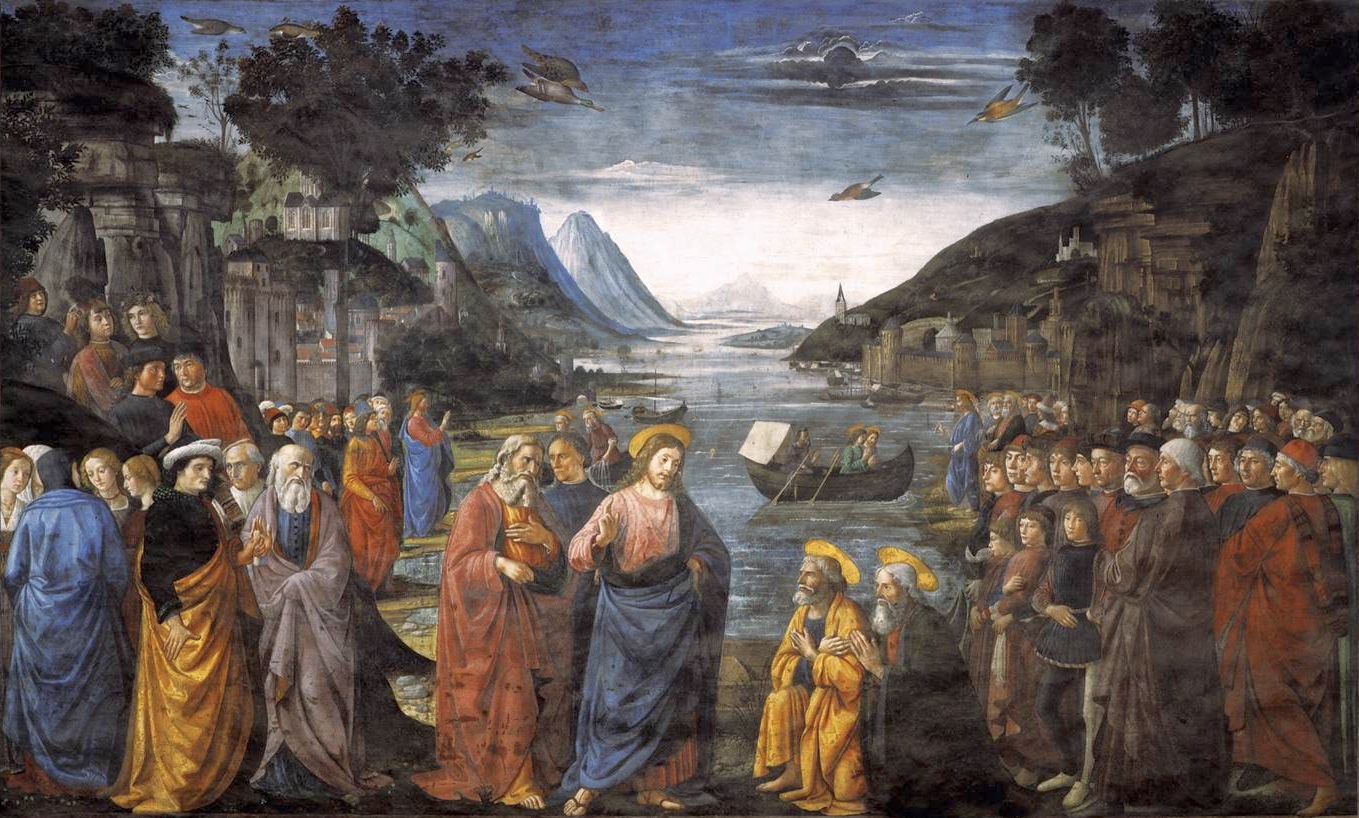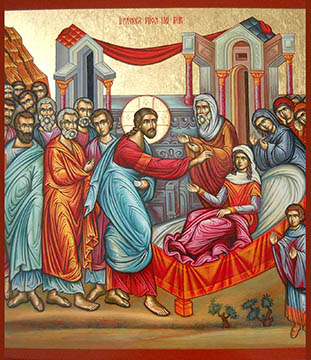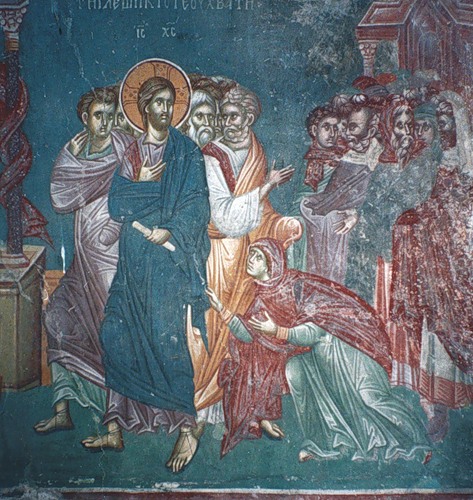First Reading — Jeremiah 23:1-6
1 “Woe to the shepherds who destroy and scatter the sheep of my pasture!” says the LORD. 2 Therefore thus says the LORD, the God of Israel, concerning the shepherds who care for my people: “You have scattered my flock, and have driven them away, and you have not attended to them. Behold, I will attend to you for your evil doings, says the LORD. 3 Then I will gather the remnant of my flock out of all the countries where I have driven them, and I will bring them back to their fold, and they shall be fruitful and multiply. 4 I will set shepherds over them who will care for them, and they shall fear no more, nor be dismayed, neither shall any be missing, says the LORD. 5 “Behold, the days are coming, says the LORD, when I will raise up for David a righteous Branch, and he shall reign as king and deal wisely, and shall execute justice and righteousness in the land. 6 In his days Judah will be saved, and Israel will dwell securely. And this is the name by which he will be called: ‘The LORD is our righteousness.’ ”
1. In this reading the Lord speaks to the bad shepherds, i.e., leaders of his people. What are the priorities or values of a shepherd whose sheep tremble and fear? What are the priorities and values of “The Lord our justice?”
2. Imagine that you are a caretaker of people like a shepherd is for sheep. What can you do about the fear people experience all over the world due to injustice? Are you able to do anything to remedy any of the injustices? Is there anything you can do about unfair situations in your own living area?
3. Contrast the results of the two kinds of shepherds
Second Reading - Ephesians 2:13-18 13
But now in Christ Jesus you who once were far off have been brought near in the blood of Christ. 14 For he is our
peace, who has made us both one, and has broken down the dividing wall of hostility, 15 by abolishing in his flesh
the law of commandments and ordinances, that he might create in himself one new man in place of the two, so
making peace, 16 and might reconcile us both to God in one body through the cross, thereby bringing the hostility to
an end. 17 And he came and preached peace to you who were far off and peace to those who were near; 18 for through
him we both have access in one Spirit to the Father.
1. Paul, a Jew preaching to Gentiles, was now a Christian preaching to Jews. There were a lot of barriers or dividing walls as Paul calls them. Discuss dividing walls present today among peoples of different beliefs, races or cultures.
2. Which dividing walls seem most impenetrable to you? Using this reading as a guide, what might people do who would like to resolve their differences or in other words break down walls that divide them? For instance, on June 17th a white man in Charleston, SC, killed nine black people in a Bible study group. The families of the victims forgave the killer. Is this the kind of action that will break down a dividing wall?
2. How did God bring about reconciliation between the Gentiles and Jews?
3. Define reconciliation from this passage.
Gospel Reading — Mark 6:30-34
30 The apostles returned to Jesus, and told him all that they had done and taught. 31 And he said to them, “Come away
by yourselves to a lonely place, and rest a while.” For many were coming and going, and they had no leisure even to
eat. 32 And they went away in the boat to a lonely place by themselves. 33 Now many saw them going, and knew
them, and they ran there on foot from all the towns, and got there ahead of them. 34 As he went ashore he saw a great
throng, and he had compassion on them, because they were like sheep without a shepherd; and he began to teach
them many things.
1. Pope Francis addressed the priests of Rome on the topic of mercy by calling to mind the scene in which Jesus is moved with pity for the vast crowd for they were tired and worn out, like sheep without a shepherd. How does his statement illustrate the line from the Gospel?
2. Pope Francis said that the Gospel “must be proclaimed in poverty,” and that Jesus wanted the disciples to have a “no frills attached” attitude—“no food, no sack, no money in their belts.” How does this kind of detachment help disciples heal the “wounded and oppressed” mentioned below?
2. Pope Francis said that the Gospel “must be proclaimed in poverty,” and that Jesus wanted the disciples to have a “no frills attached” attitude—“no food, no sack, no money in their belts.” How does this kind of detachment help disciples heal the “wounded and oppressed” mentioned below?
[Many] are wounded by material problems, by scandals, even in the Church, [and] the illusions of the world. We priests must be there, close to these people. … Mercy means, above all, taking care of wounds. When a person is injured, this is the immediate help they need, not analysis; the special care can follow, but first we need to tend to the open wounds. Pastoral suffering [is] suffering with the people, like a father and a mother suffer for their children, and I would say also with anxiety.
4. How do you respond when you are thrown into a hectic situation?
5. Do you think people appreciate being shepherded? Why, or why not?
6. Explain Jesus’ comment that they were “like sheep without a shepherd.”
7. What have you discovered personally about Jesus’ care?








